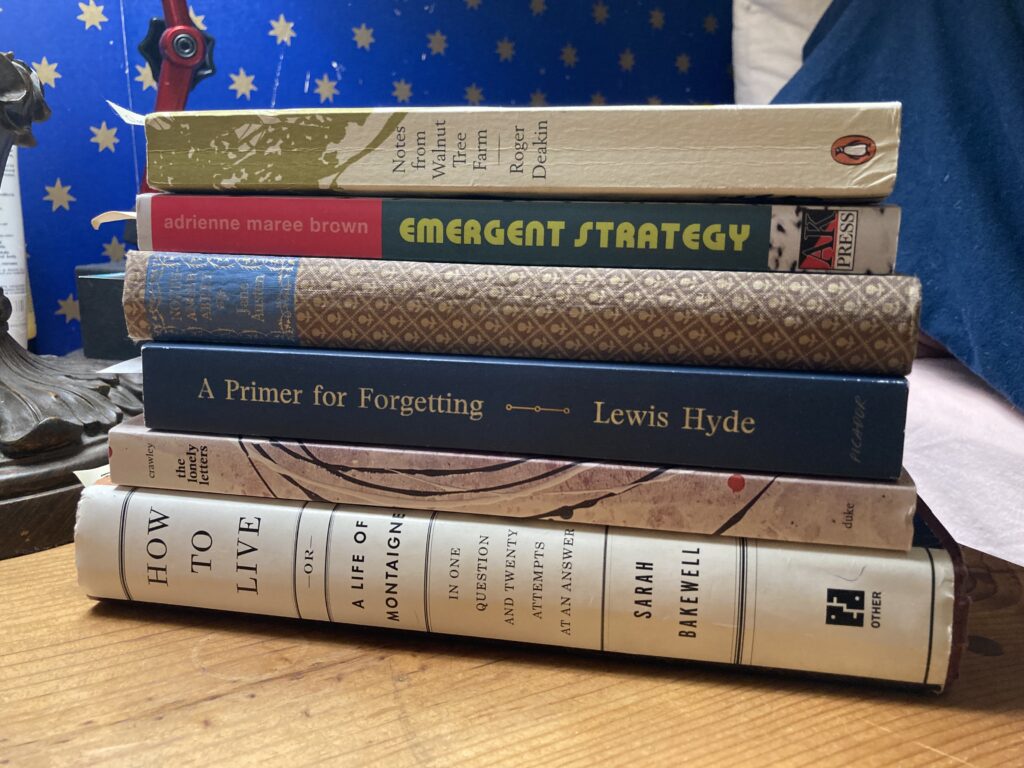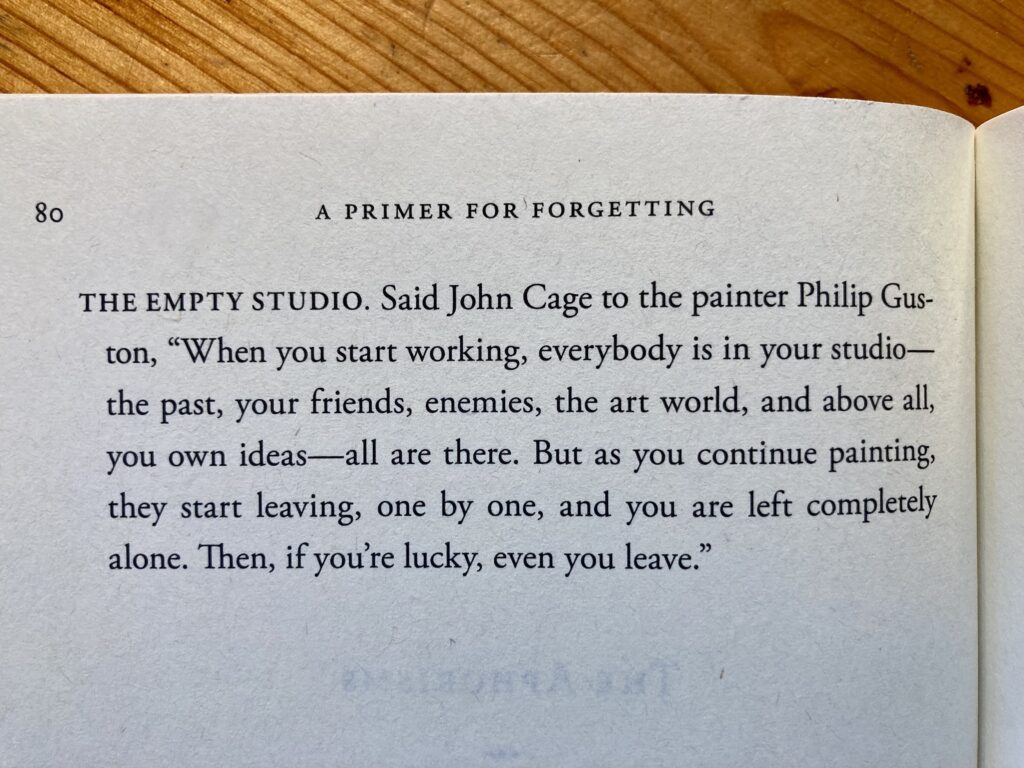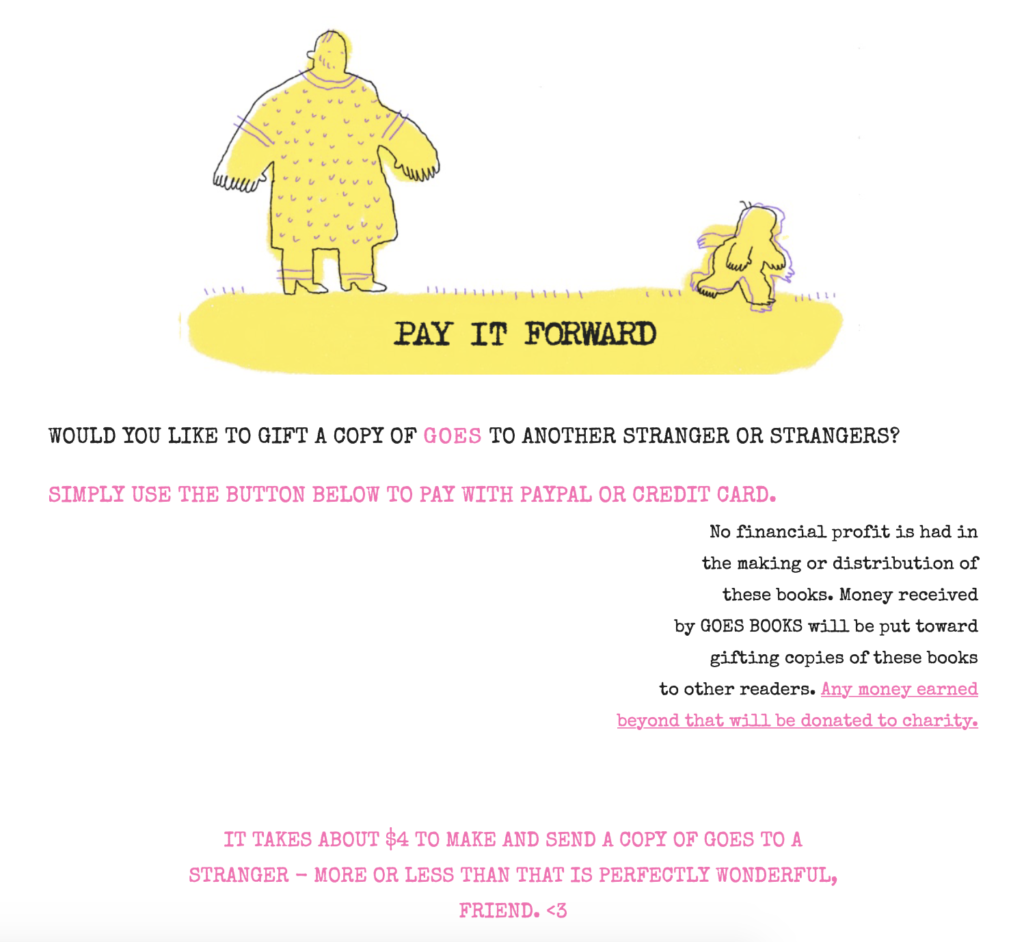I’d never even heard of Infinity Zines before, but this one Kori made is just stunning:
Then there’s a tiny essay Anne sent me in the mail that’s modeled on a cootie catcher. It’s about care and capitalism and giving and receiving, but it’s more complicated to photograph than I have the energy for tonight, so this is just to say that I am having a lot of feelings about unusually-formatted zines lately. I think they’re very good.
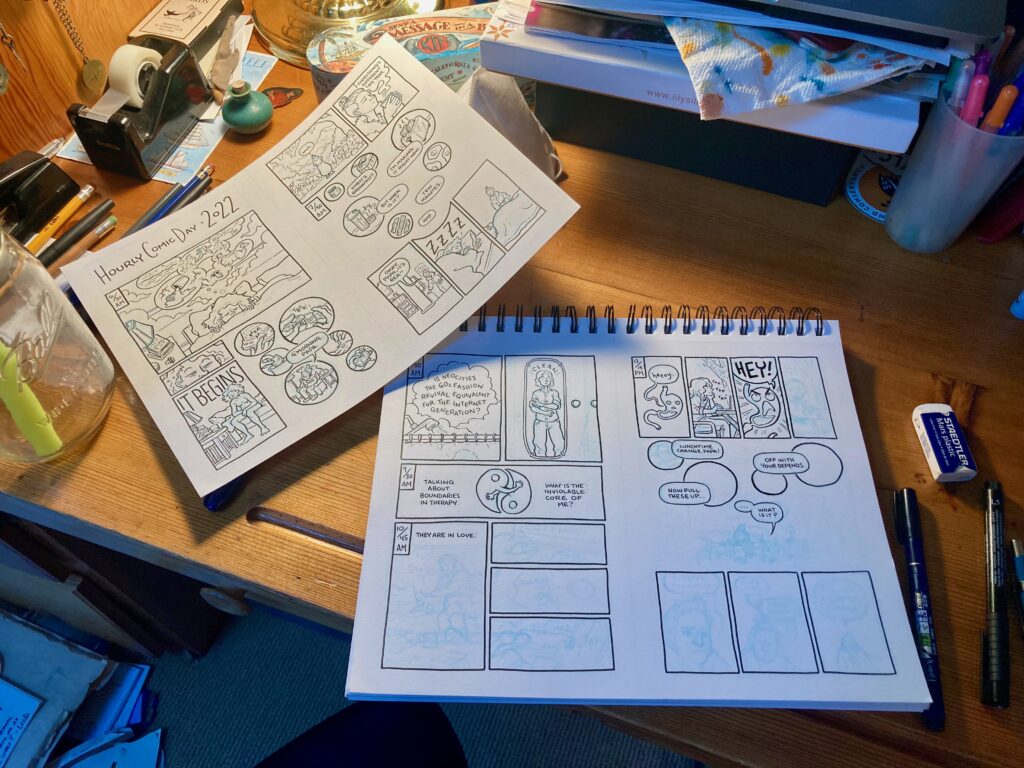
I’m inking my entries from Hourly Comic Day, which knocked me on my ass this year. It’s not that it was a lot of work (I mean, it was), but more that it forced me to really look at what’s happening in my life during this season. To examine the monotony and poignancy and fear and humor of caregiving. To feel as if part of me is still trying to maintain a life like the life I had when I did Hourly Comic Day last year (and the year before that, and the year before that, and so on x 10).
Not wanting to draw my dad because to draw someone you have to really look at them and sometimes it’s too painful to look at him.
And then also understanding that sometimes the best thing I can do is look at my pain.
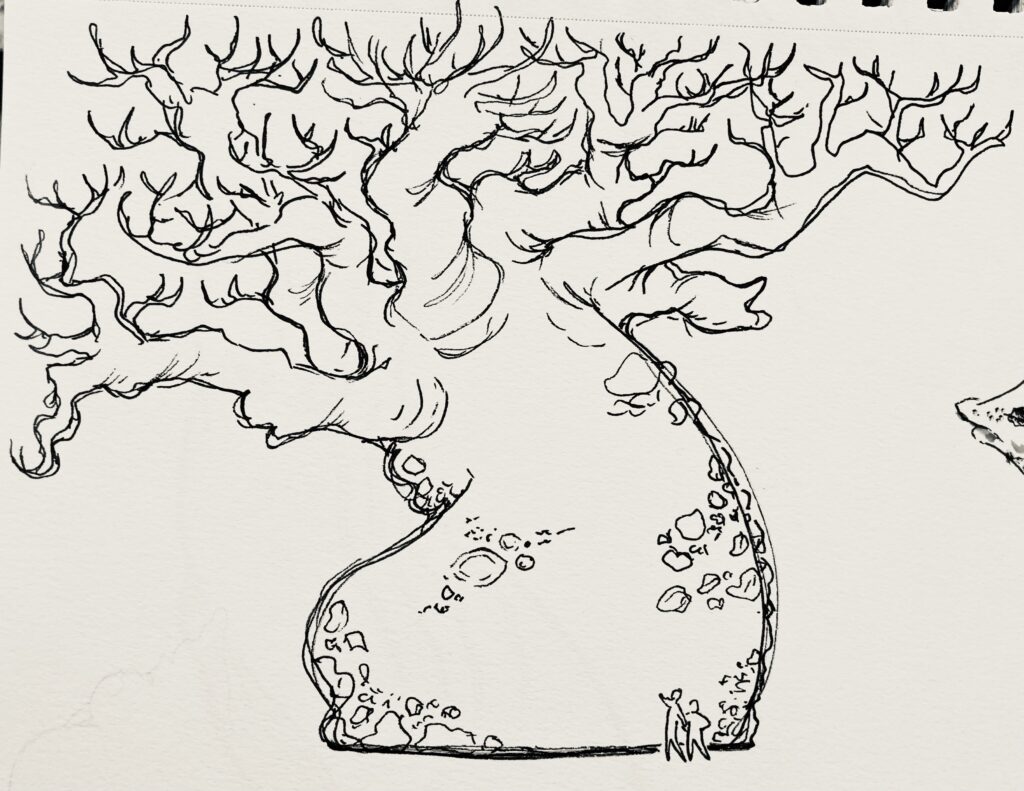
I hosted another Chill Drawing Hangout on Zoom earlier today and it was lovely. I’m grateful to know so many people who are willing to gather and be generous with each other and enjoy making art together. I’m going to do my best to make it a monthly practice, which means next one’s March 4th from 12-2pm Pacific. (That’s one day before we’re due to open a show of the collages I’ve been making with my dad, so I’m anticipating that I will be a mess, but that probably also means a couple hours friendly drawing will be much-needed.)
I want to write properly about how long it’s taken me to realize that one of the MANY reasons I’m in love with Lewis Hyde’s A Primer for Forgetting is that it’s basically a blog in book form. So many small chapterlets subdivided into loose categories, all titled with brief words or phrases, all circling similar themes. It’s how I think about what I’m doing here (or with my Rambles)—building a database over the course of many months of Stuff I Am Thinking About so that someday I can surprise myself by finding out the seeds of the next thing have been germinating for longer than I’ve known.
Nisabho’s been recording meditations and sharing them online, which I only realized recently while trying to Google the name of the monastic community he’s working to establish up in Seattle. We went to college together (he features very prominently in True Believer, the first comic I funded on Kickstarter) and he’s remained one of my lighthouse humans. Anyway, Wednesday this week was rough and so I found myself listening to this half-hour talk on grief and mourning to try and cope. It was so lovely—like we were still walking together in the early dark of Portland in October 2020. He recited the same Mary Oliver poem for me on the sidewalk there. I got to share my 100 Day Project with him and his parents.
This post is basically Sarah Ruhl’s 100 Essays I Don’t Have Time to Write, although she was caring for small children when she wrote it, but I feel an increasing affinity with anyone who’s doing 24/7 care work these days.
Okay that’s enough small things, back to doing dishes.
